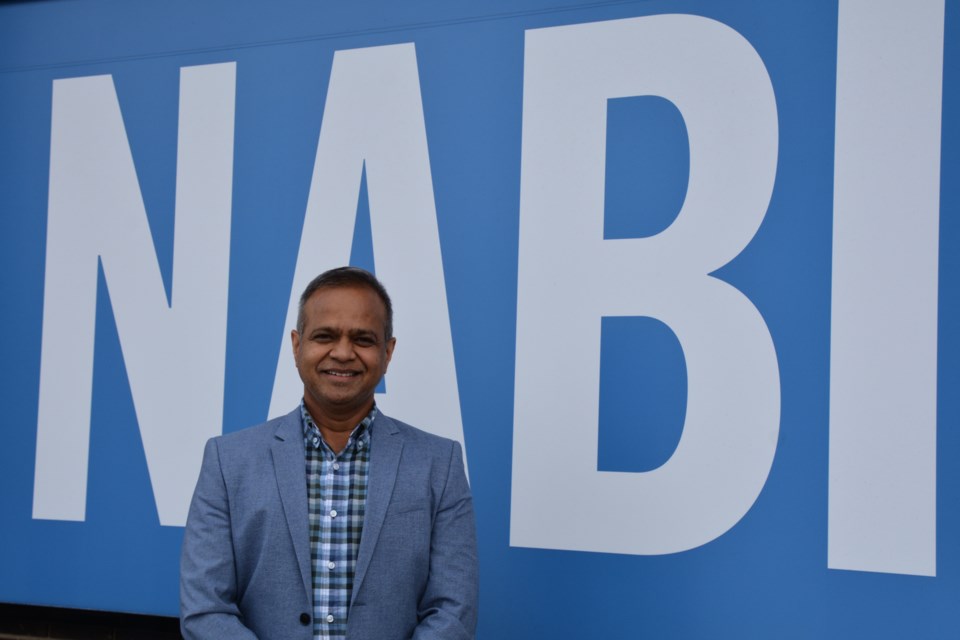St. Albert’s Northern Alberta Business Incubator (NABI) hopes the city will consider lifting its pause on funding for the organization, which has been largely self-reliant for over two years.
In 2021, when council voted to stop offering operational funding to NABI, a primary criticism was the organization failed to graduate businesses fast enough. The city had concerns that NABI could be offering support in the form of month-to-month office leases, coaching, educational sessions and networking opportunities to businesses that had already proved successful.
But Rajesh Jaiswal, NABI’s executive director, says the organization has remedied this problem.
Part of the fix involves NABI closely tracking the data about how businesses are using its programs, Jaiswal said.
NABI has a three- to five-year “incubation period,” at which point businesses lose access to some of the organization’s services.
“Due to improved programming and the support system that we are building here, we have seen … companies starting out from NABI are able to grow their business within two or three years and then leaving on their own. We didn’t even have to tell them their time was up.”
Most business incubators receive some measure of funding from municipal, provincial and federal governments. But NABI is an outlier in that it does the job on its own, Jaiswal said.
Losing support from the city was “tough, and is still tough,” he said. “It’s a little bit frustrating, because we do have a lot of capabilities, but we lack capacity. And there is a huge demand for support, which no other organization is currently providing in St. Albert. We are a key partner in economic development, and the City of St. Albert created NABI.”
Without city funding, NABI had to cut two part-time and one full-time staff. It currently has four staff members (two part-time and two full-time), too few to easily run an operation of NABI’s size, according to Jaiswal. Staff support the roughly 45 businesses that are tenants at NABI.
“We had a receptionist, and now we have a virtual reception which operates 24/7,” he said “We have leveraged some of the technologies and simplified our operations.”
And NABI is facing the same economic pressures of inflation and high interest rates as the businesses it serves.
“Utility costs have gone up, and so have our maintenance costs,” Jaiswal said. “There are so many expenses which go into our operation … Employee salaries have not gone up, because we don’t have much room in our budget to make that happen. We would like to grow our employees and make them successful and add more so we can support more companies.”
Jaiswal sees the relationship between NABI and the city as a supportive one that goes both ways, and he said the city was an excellent partner to the business incubator for over 30 years.
Between 2008 and 2020, NABI received nearly $3 million in funding from the city.
It funded NABI through a capital grant for the purchase of NABI’s offices in Campbell Business Park; operating grants, to support certain projects and services; a rent subsidy for the building it previously owned on Mission Ave. (before the building was demolished); and an operating expense subsidy for the Mission Ave. building, according to Mike Erickson, city’s director of economic development.
In an email, Erickson said the city has not received any formal requests from NABI for new funding.
“The city works collaboratively with NABI on various initiatives to support local businesses,” he said. Those initiatives include job fairs, business information and education and business engagement.
For the funding pause to be lifted, NABI could make a request to council, Erickson said.
“The city has a civic granting policy which establishes guidelines and principles under which civic grants may be awarded to individuals, organizations, or businesses,” he said.
Currently, NABI supports between 120 and 130 businesses, including businesses that are not NABI members but access its resources.




